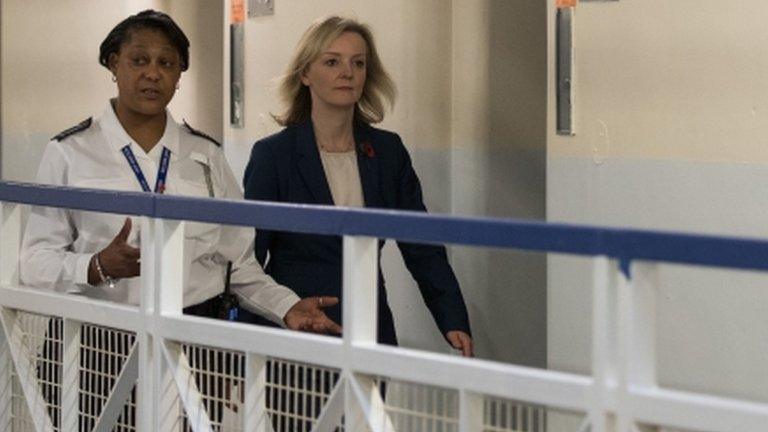'Record number' of prison suicides in England and Wales
- Published
- comments
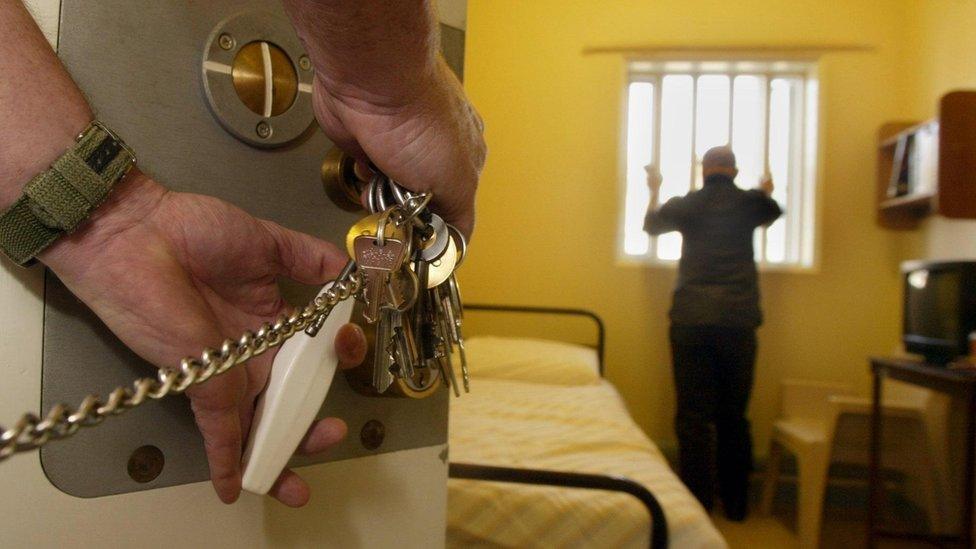
A record number of inmates have taken their own lives in prisons in England and Wales so far this year, a prison reform charity has said.
The Howard League for Penal Reform said it knew of 102 suicides, the highest since its records began in 1978.
The charity said cuts to staffing and budgets had "created a toxic mix of violence, death and human misery".
The government has pledged 2,500 extra officers and special measures for vulnerable or mentally ill inmates.
The previous highest toll recorded by the charity was 94 suicides in 2004.
However, the overall prison population has increased by about 10% since then, meaning the suicide rate was actually slightly higher in 2004.
Then, there was approximately one suicide for every 830 prisoners. So far in 2016, there has been one death for roughly every 840 prisoners.
'So desperate'
The Howard League released the figures, external as it published a joint report alongside Centre for Mental Health, another charity.
The report said there had been a rise in violence in prisons at a time when inmates were spending up to 23 hours a day locked in their cells.
Howard League chief executive Frances Crook said: "The number of people dying by suicide in prison has reached epidemic proportions.
"No one should be so desperate while in the care of the state that they take their own life, and yet every three days a family is told that a loved one has died behind bars.
"Cutting staff and prison budgets while allowing the number of people behind bars to grow unchecked has created a toxic mix of violence, death and human misery."
The report called for the incentives and earned privileges scheme in prisons to be scrapped, saying it was having a "detrimental impact" on inmates' wellbeing.
The scheme allows prisoners to earn benefits in exchange for behaving responsibly.
But the report said it was leading to some prisoners having limits placed on family contact, physical activity and access to money and possessions.
Prison protests
The prison service has come under the spotlight recently, with thousands of officers protesting over concerns about safety earlier this month.
It came after a string of high-profile incidents including the escape of two inmates, who were later recaptured.
This month former Justice Secretary Michael Gove warned that too many people were being sent to prison, while the Lord Chief Justice Lord Thomas of Cwmgiedd suggested more criminals could be punished without being jailed.
Earlier this month, Justice Secretary Liz Truss unveiled a White Paper, external detailing a £1.3bn investment in new prisons over the next five years, including plans for more prison officers, drug tests for inmates on entry and exit from prisons, and more autonomy for governors.
A government spokeswoman said mental health in custody was taken "extremely seriously" and there were "a range of measures already in place to help support prisoners".
She added: "But we recognise that more can be done. That is why have invested in specialist mental health training for prison officers, allocated more funding for prison safety and have launched a suicide and self-harm reduction project to address the increase in self-inflicted deaths and self-harm in our prisons."
- Published17 November 2016
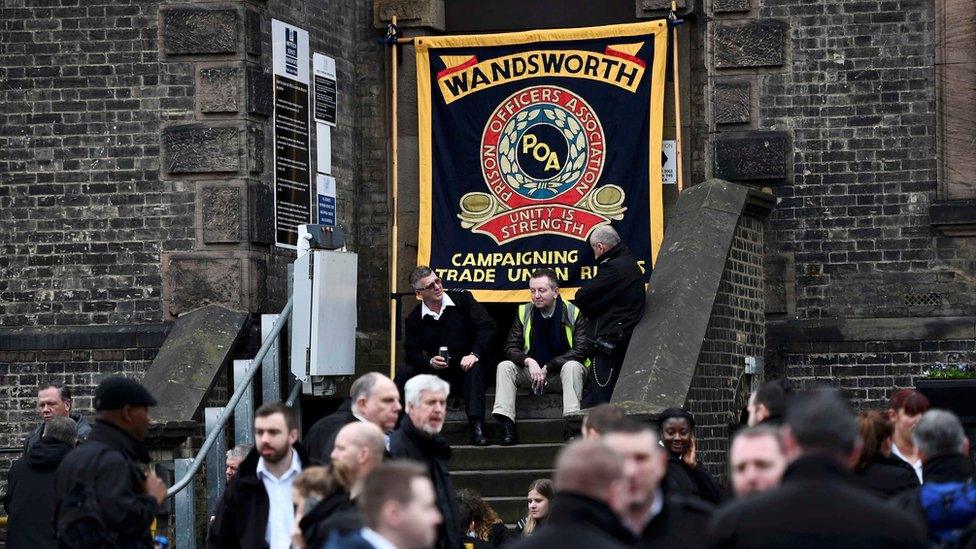
- Published14 November 2014
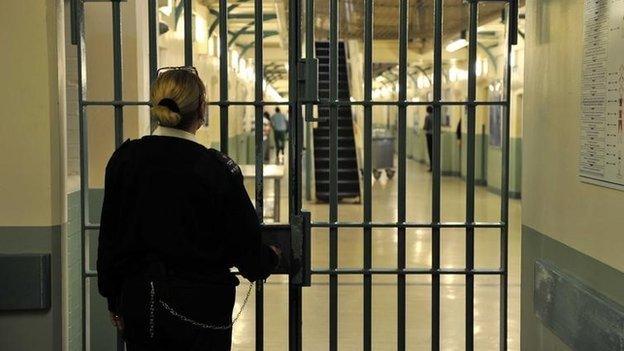
- Published17 November 2016
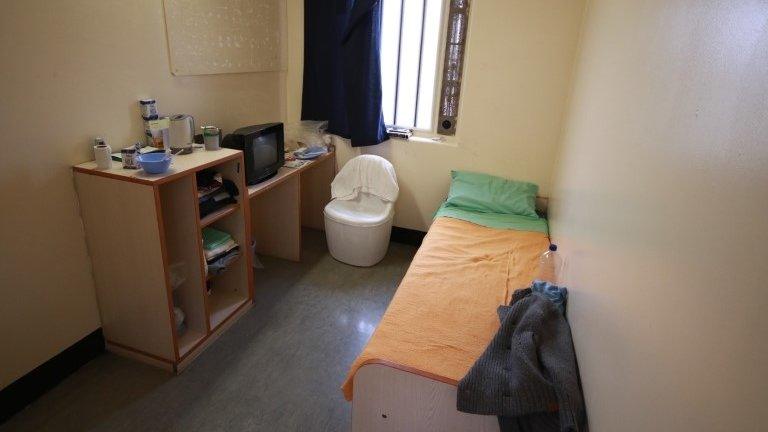
- Published7 November 2016
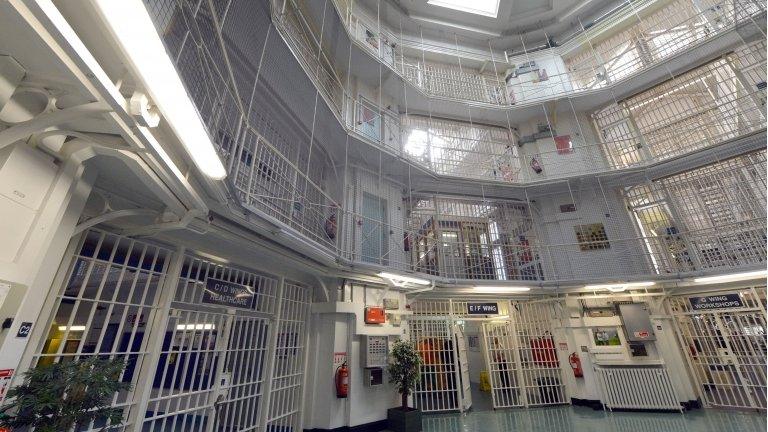
- Published3 November 2016
